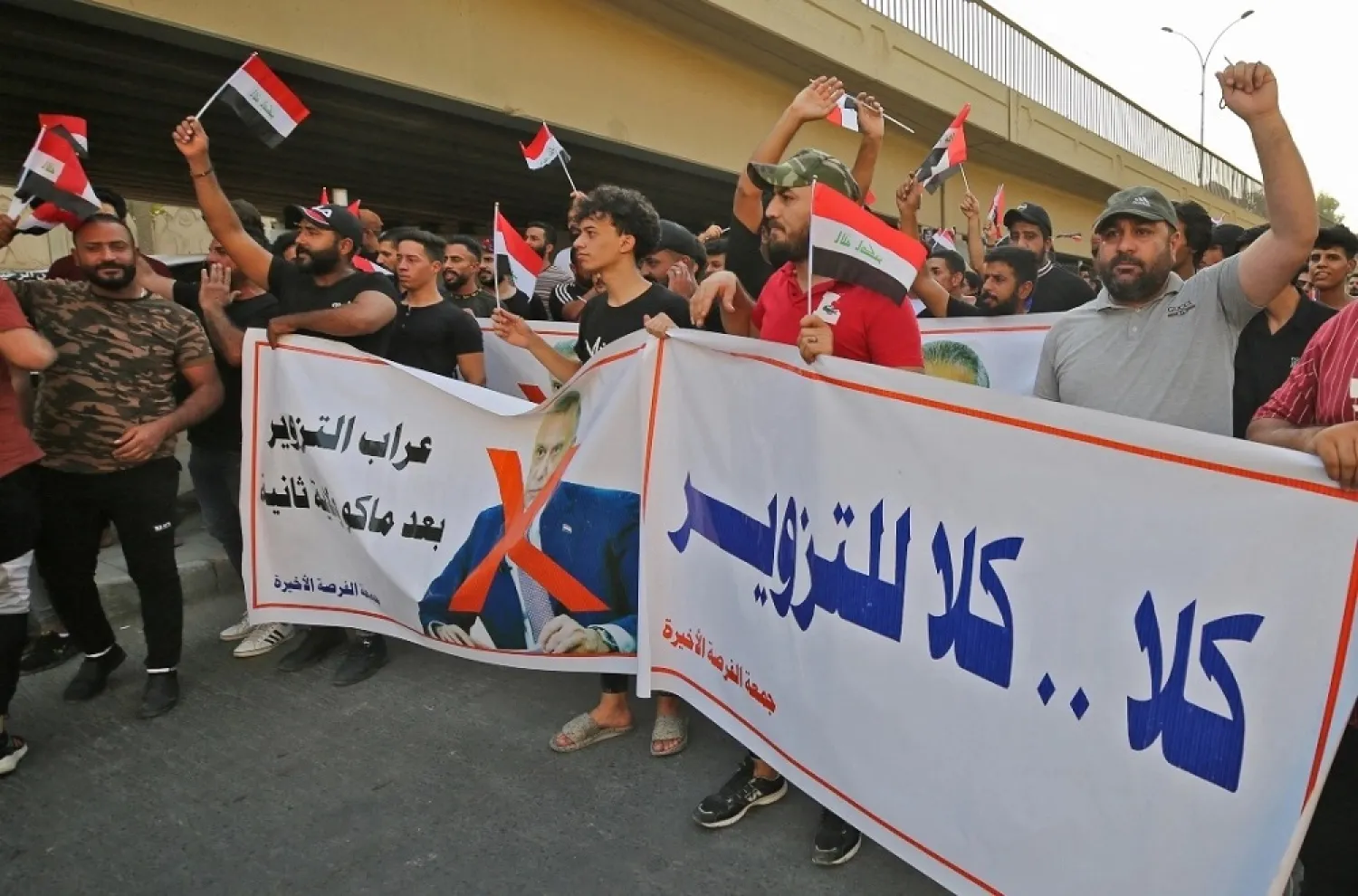Iraq continues to grapple with the fallout from the October parliamentary elections, with the losing Shiite parties insisting on the annulment of their results after it became apparent that the appeals they have submitted will not lead to radical change in their outcome.
Hundreds of supporters of the losing parties - mainly those loyal to Iran - headed to the gates of Baghdad's heavily fortified Green Zone to press their demands.
Head of the Sadrist movement, Shiite cleric Moqtada al-Sadr, has so far emerged as the victor in the polls.
The German news agency said supporters of the Shiite Fateh, Badr, Asa'ib Ahl al-Haq, Hezbollah Brigades in Iraq, Hikma, Nasr and State of Law Coalition staged Friday's protests.
Organizers of the rallies accused in a statement the Independent High Electoral Commission of "corruption" and of "stalling" in addressing the vote appeals. Moreover, they demanded the expulsion of United Nations envoy to Iraq Jeanine Hennis-Plasschaert.
This a "popular" demand that not only reflects the stance of the opponents of the "fraudulent" elections results, but all Iraqis, stressed the statement.
The electoral commission had completed on Thursday the manual recount of all ballots in certain voting stations that was demanded by the relevant judicial authority.
Meanwhile, Sadr on Friday called for holding to account the parties that had carried out the drone attack against Prime Minister Mustafa al-Kadhimi's residence earlier this month.
"Revealing the investigations has become necessary," he said in a tweet, demanding the arrest of the "terrorists who had carried out this terrorist act."
"If their identities are not revealed, then we may be forced to do so in the future," he added.
The pro-Iran factions that lost in the elections are widely believed to be behind the attempt on the PM's life.









